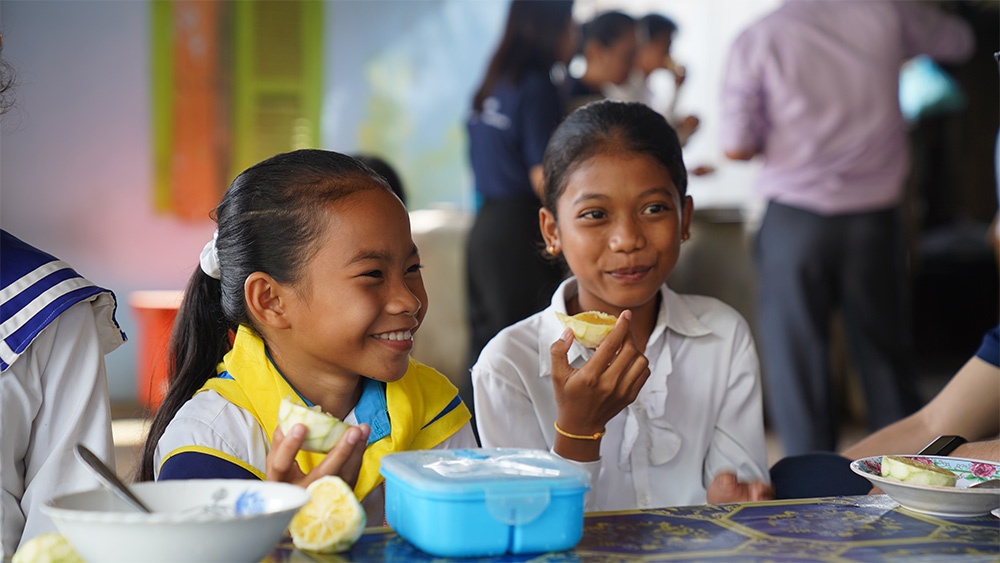
Government Voices: Cambodia Community Roots, Brighter Futures - How Cambodian Parents Are Transforming School Meals
Blog by Mr. Ven Thol, Deputy Director of the Primary Education Department at the Ministry of Education, Youth and Sport, Cambodia and GCNF’s local focal point for the Global Survey of School Meal Programs©
In the quiet mornings of rural Cambodia, something powerful is taking root—parents are helping put fresh fruit on their children’s school plates.
The initiative is a community-led effort, independent of government mandates or donor-driven campaigns. It is steadily transforming school nutrition through the regular inclusion of locally sourced foods such as bananas and pumpkins.
In over 1,100 schools across ten provinces, students start their day with a warm, nutritious breakfast through a national school feeding programme supported by the Ministry of Education, Youth and Sport and the World Food Programme (WFP). And recently, a humble addition has made those meals even better—fresh fruits and vegetables contributed by the communities themselves.
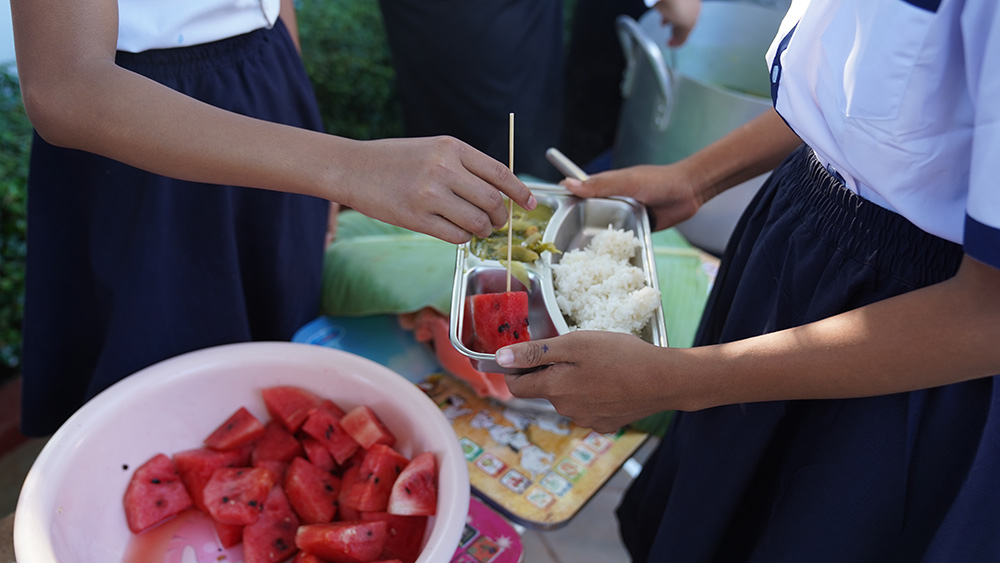
Vessvan Primary School, Siem Reap, 2024. Photo Courtesy Mr. Dara Pech, WFP-Cambodia
Dubbed the Parents-Funded Fresh Fruit Initiative, this voluntary effort is built on one powerful idea: that parents, schools, and neighbors can all pitch in—bringing coconuts, jackfruit, sweet potatoes, or whatever is in season—to enrich school meals and support children’s health.
“I may not have much money,” says Sokha Chea, 38, a mother in Siem Reap, “but I can bring bananas from my home garden. It feels good to know my child—and their friends—are eating well.”
While participation isn’t mandatory, most schools have embraced the initiative wholeheartedly. With guidance and technical support from WFP, communities adapt the model to fit their needs. Some collect small monthly contributions; others accept in-kind donations. What matters most isn’t the amount—it’s the spirit of giving and the shared sense of responsibility.

Vessvan Primary School, Siem Reap, 2024. Photo Courtesy Mr. Dara Pech, WFP-Cambodia
“Even small donations make a big difference,” explains Nara Sab, 58, a school principal of Chan Kiri Primary School located in Siem Reap. “Some bring coconuts, others bring pumpkins. It’s not about how much—it’s about showing we care.”
The benefits ripple far beyond the plate. Children get a richer mix of nutrients—vitamins and minerals that support healthy growth and sharper focus in class. “The students are more alert now,” shares Poth Pheak, 30, a teacher from Siem Reap. “At the start of class, the students are fed, in good spirits, and ready to learn.”
Local farmers and small vendors are also part of this ecosystem. In some areas, with the monthly contribution from parents, school source additional
ingredients from nearby producers, creating modest opportunities for local engagement.
But perhaps the greatest impact is the renewed bond between home and school. Parents are now not only caregivers at home, but also active contributors to their children’s education and well-being at schools. This sense of ownership is what makes the initiative both sustainable and scalable.
“This shows the power of community engagement,” says Saing Rathna, deputy district governor of Banteay Srey district, Siem Reap province, who is supporting the initiative. “When parents are engaged, programmes become sustainable.”
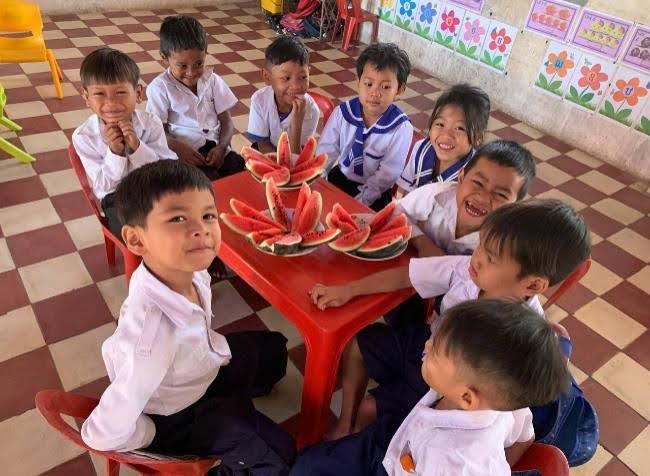
Vessvan Primary School, Siem Reap, 2024. Photo Courtesy Mr. Dara Pech, WFP-Cambodia
In a world where many solutions are flown in from outside, this one grows from within—rooted in community, fueled by generosity, and driven by love for the next generation. This is what’s possible when communities come together for their children’s future.
About this Series
This blog is part of Government Voices, a blog series from the Global Child Nutrition Foundation (GCNF) highlighting the voices of government leaders who are shaping and advancing school meal programs around the world. The series explores national strategies, policy development, program implementation, funding models, and partnerships that support effective, sustainable school meal programs.

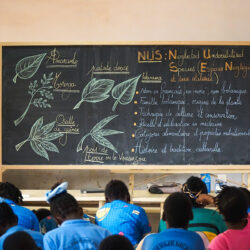


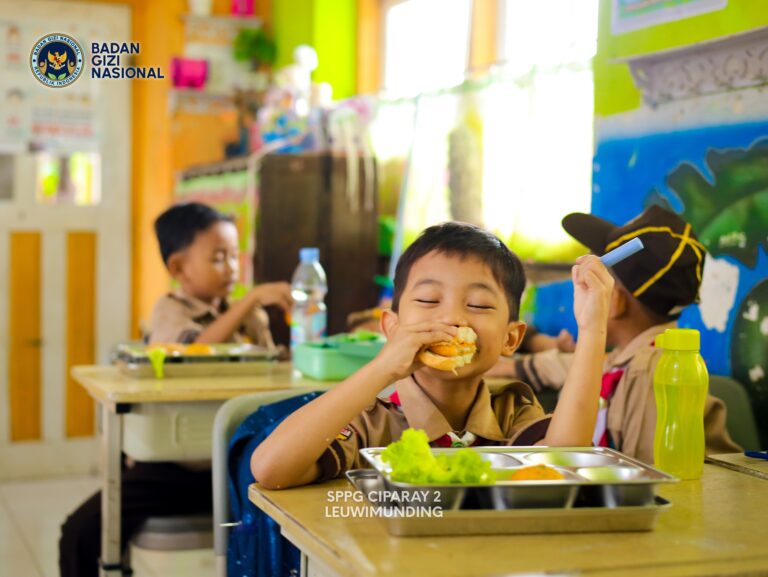

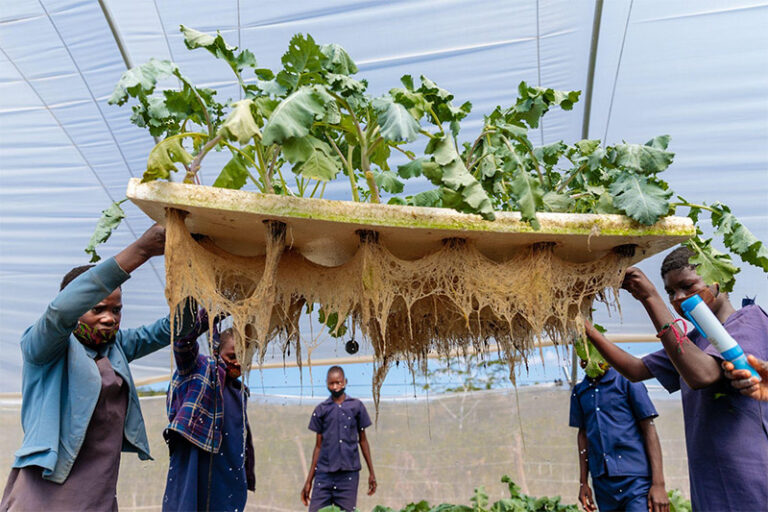
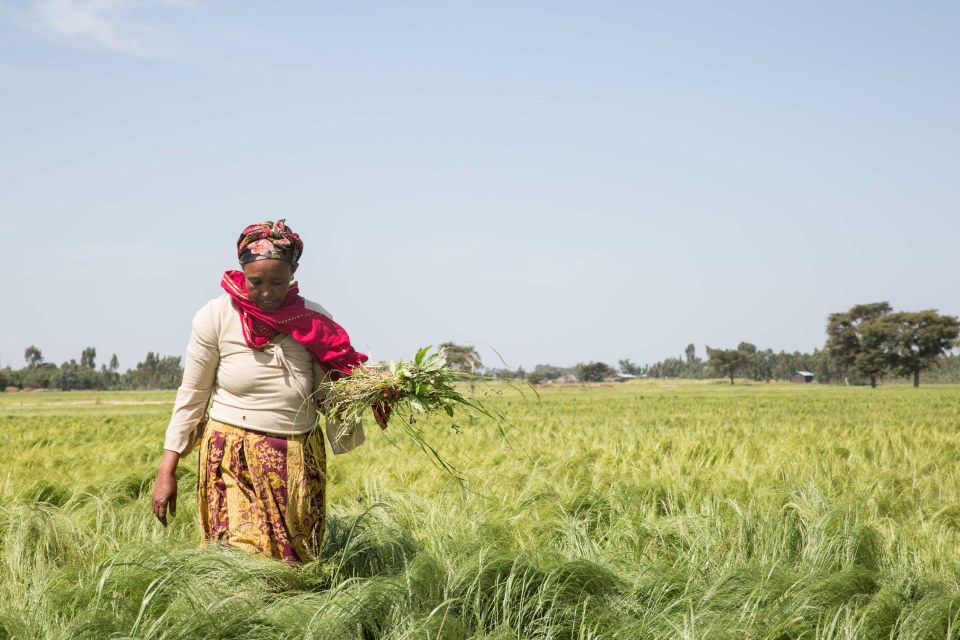
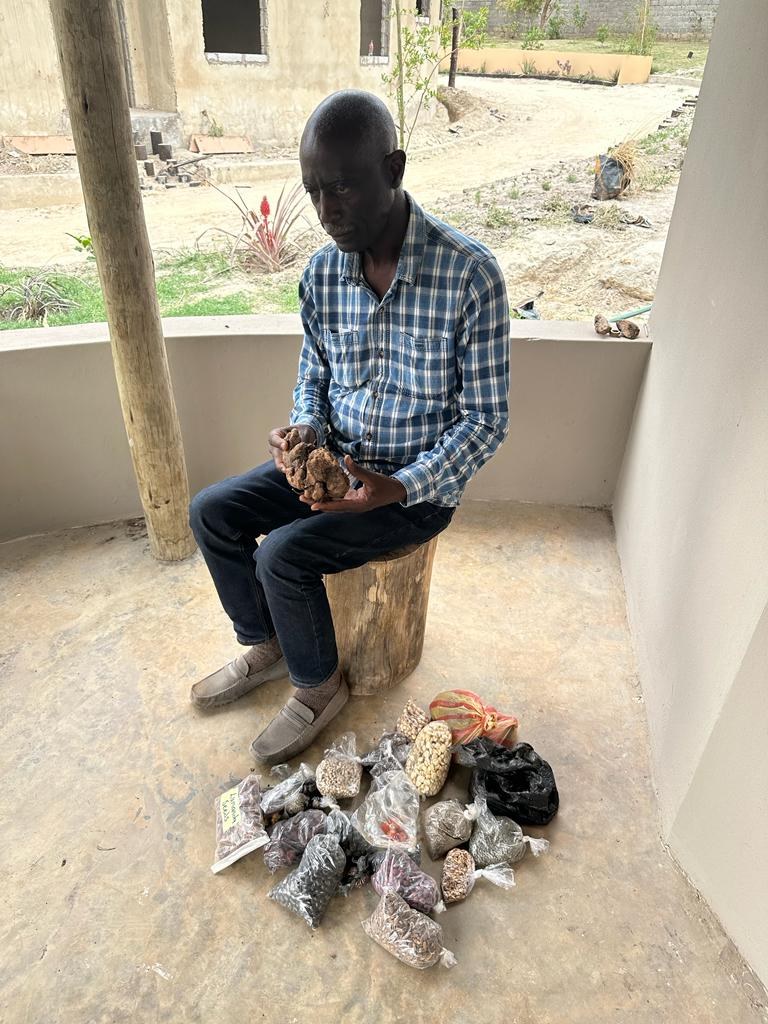
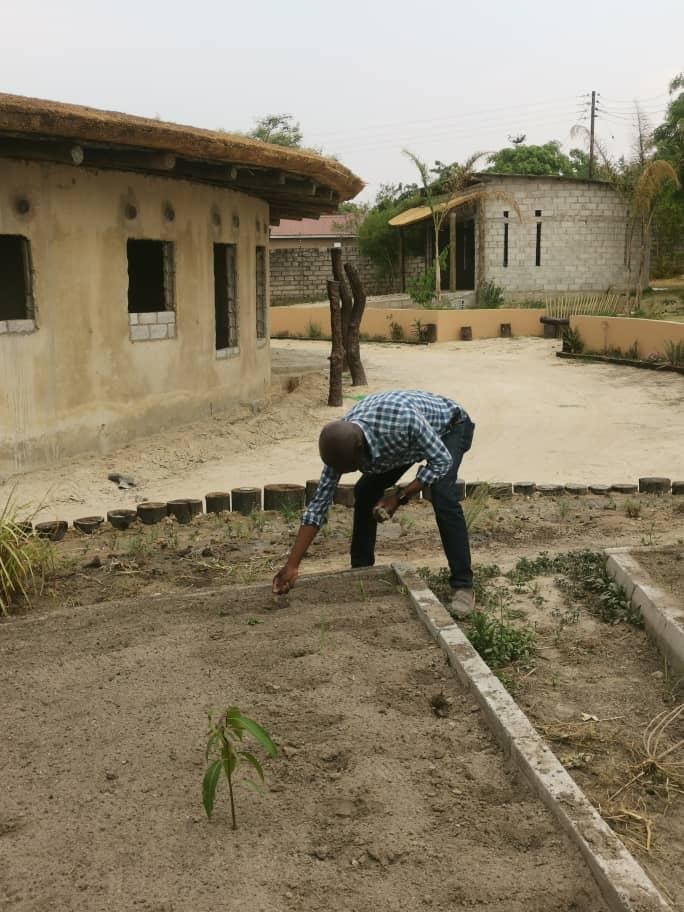
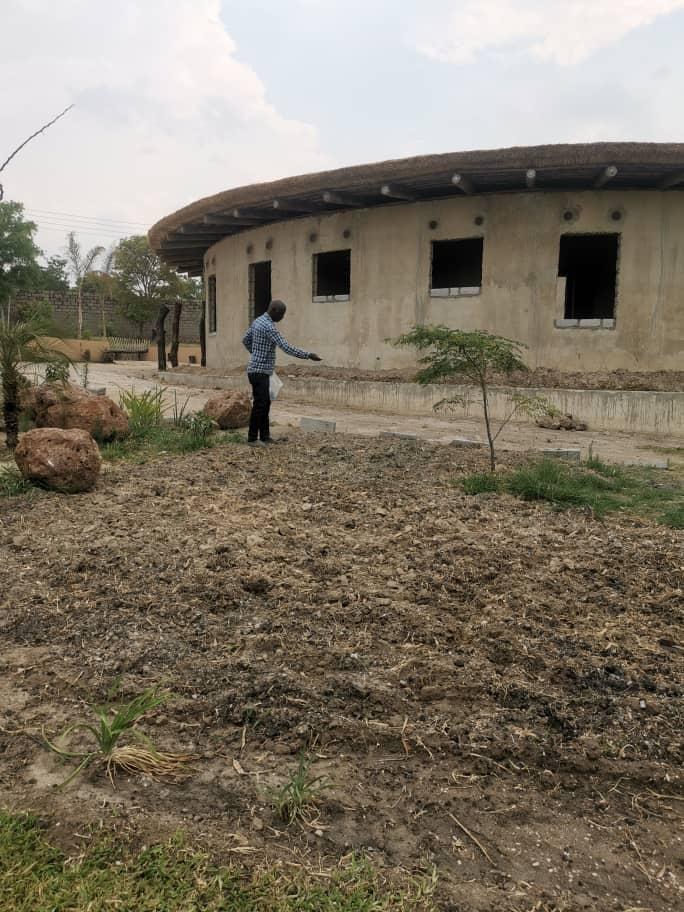
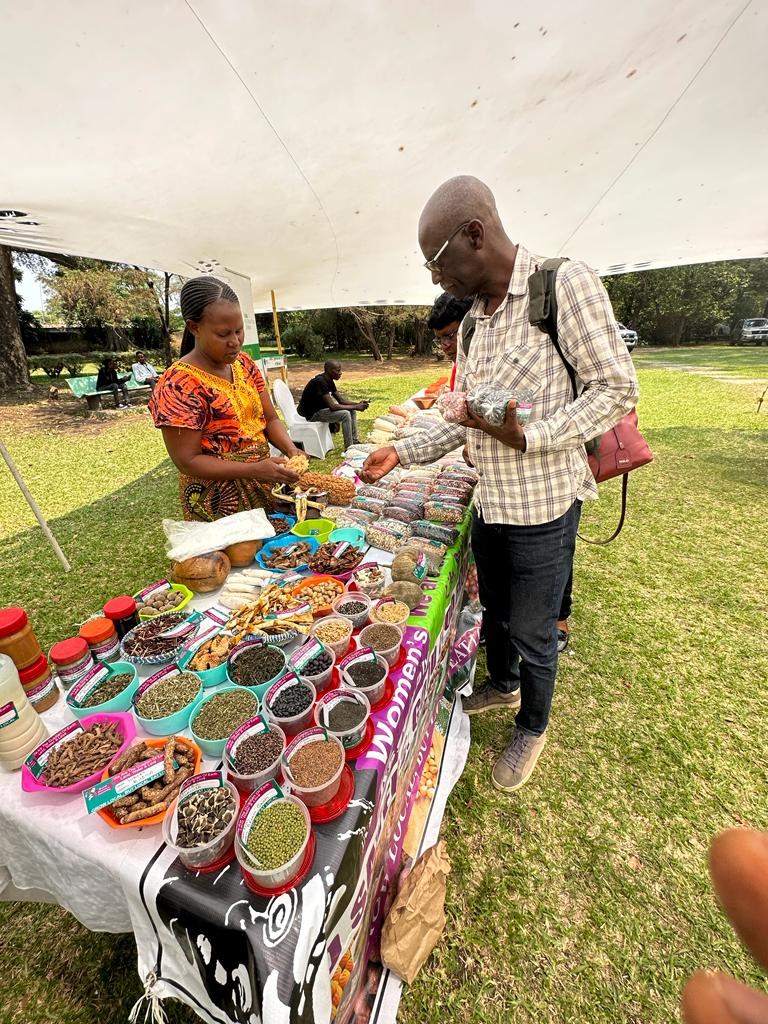
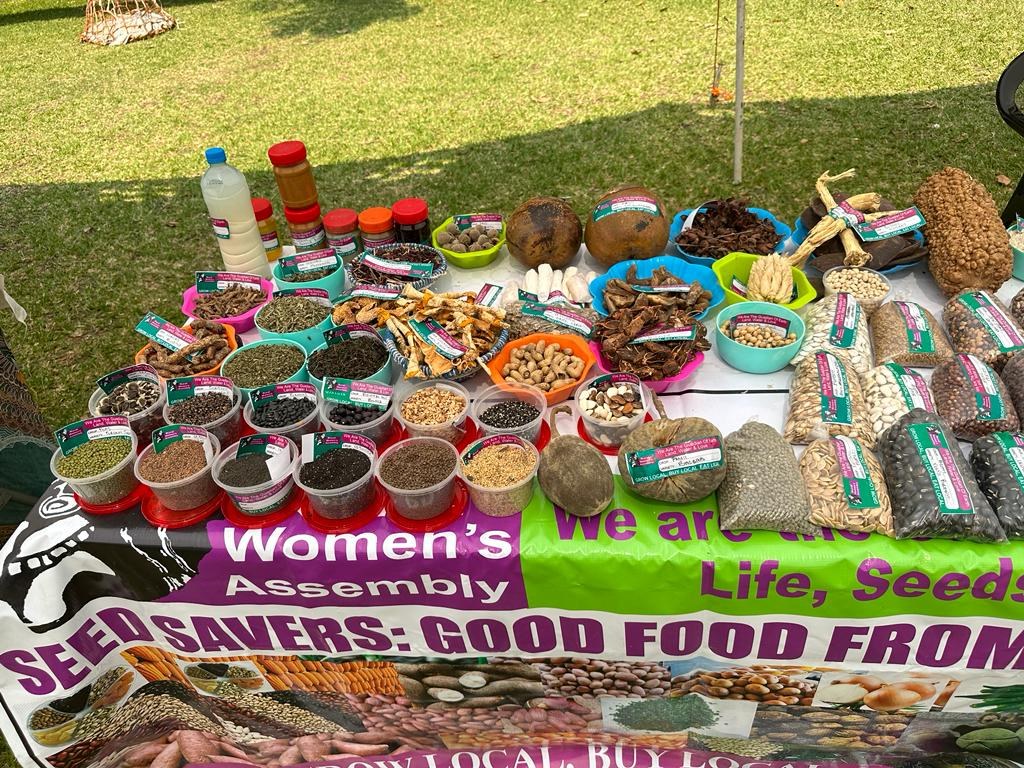
No comment yet, add your voice below!